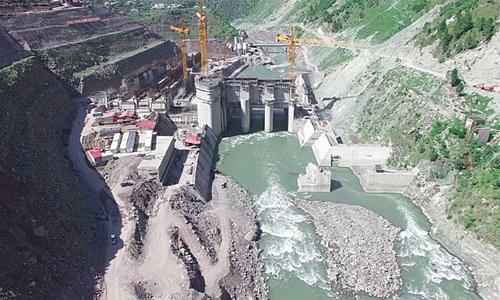Web Desk
Pakistan’s Foreign Office (FO) said on Thursday it had received the decision of the Permanent Court of Arbitration — a non-UN intergovernmental organisation located in The Hague — which declared the body competent to adjudicate on a dispute between Pakistan and India over the construction of two hydroelectric projects in occupied Kashmir, pursuant to the decades-old Indus Waters Treaty.
The dispute pertains to concerns raised by Pakistan over India’s construction of the 330-megawatt Kishanganga project on the Jhelum River and plans to construct 850-MW Ratle project on the Chenab River in occupied Kashmir.
“The Government of Pakistan is in receipt of the Award of the Court of Arbitration, addressing its competence and the way forward on the disputes between Pakistan and India concerning the Kishenganga and Ratle Hydroelectric Projects, and wider questions of the interpretation and application of the Indus Waters Treaty,” the FO said in a statement on Thursday.
The court had upheld its competence and determined that it would now move forward to address the issues in dispute, the statement added.
It also mentioned that the Indus Waters Treaty “is a foundational agreement between Pakistan and India on water sharing” and that “Pakistan remains fully committed to the treaty’s implementation, including its dispute settlement mechanism”.
“We hope that India would also implement the treaty in good faith,” the FO said.
Pakistan initiated the legal proceedings on Aug 19, 2016, by requesting the establishment of an ad hoc arbitration court pursuant to Article IX of the Indus Waters Treaty.
In its decision today, the arbitration court stated that the World Bank confirmed receiving the request on August 31, 2016.
It noted that Pakistan sought the arbitration court’s intervention to resolve issues concerning the interpretation or application of various parts of the treaty governing the design or operation of run-of-river hydroelectric plants on the Indus, Jhelum, and Chenab Rivers and their tributaries.
The country took this step after strenuously raising its concerns in the Permanent Indus Commission starting in 2006 for the Kishanganga project and in 2012 for the Ratle project and then seeking resolution in government-level talks held in New Delhi in July 2015. Pakistan’s decision to initiate proceedings is in response to India’s persistent refusal to address Islamabad’s concerns.
The treaty provides for two forums for settling the disputes — the court of arbitration, which addresses legal, technical and systemic issues; and the neutral expert, which addresses only technical issues.
Pakistan requested the establishment of the court of arbitration because of systemic questions requiring legal interpretation.















